In the 21st century, most of us wear perfumes by spraying them on our bodies. When we get ready in the mornings, we spritz our wrists and necks, then step out into the world, where we emanate fragrance to those around us. But in the past, people wore fragrances very differently. In the Middle Ages and during the Renaissance, it was common for people to wear scented jewelry on their belt or neck.
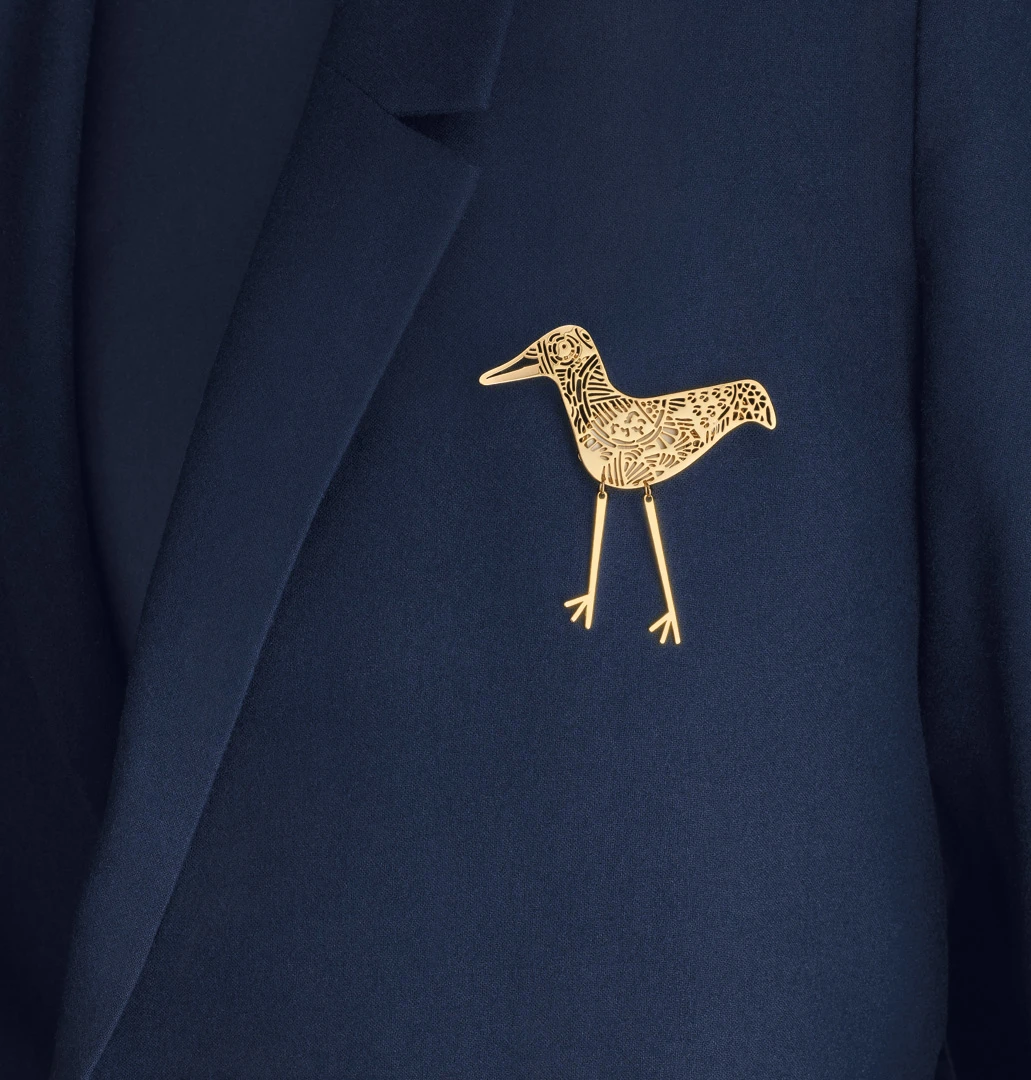
The French luxury perfumer Diptyque was inspired by these historical ways of transmitting fragrance when it created its newest line of products, called Prêts-à-Parfumer, which launch on its website on August 29. The new line contains sticker tattoos, a bracelet, and a brooch, all perfectly calibrated to emit scent when you put them on.
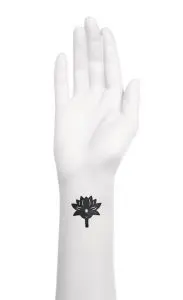
To consumers, there’s some novelty to taking these everyday objects and giving them an unexpected ability to release perfume. But these new designs also serve a functional purpose. When you spray perfume on your body, it stays with you all day. And in some cultures, it’s not considered appropriate to wear strong fragrances because it imposes on other peoples’ personal space. This is true in many parts of Asia. My mother, who is Chinese, didn’t like it when I slathered myself in Anna Sui’s Sui Dreams perfume in high school. (I thought she was crazy! Who doesn’t love the smell of vanilla and peony?) I now realize that some people find strong scents overwhelming. And in cases like these, a removable perfume is a great solution.
Of course, scented stick-on tattoos and bracelets aren’t entirely new concepts, as anyone who went to middle school in the 1990s will tell you. Back then, you could pick up scented tattoos and jewelry at Claire’s along with bubblegum-flavored lip balm and scratch-n-sniff stickers. Diptyque seems to be playing with these fun childhood items but also elevating the experience with beautiful design.
The $90 bracelet, for instance, looks like a knotted friendship bracelet. The scented thread comes in a little black box that you wind around your wrist, neck, or ankle. You cut it at the right length, then attach the ends together with a little metal clasp. Diptyque has perfectly calibrated the scent so that it emanates from the wearer much like regular perfume worn on the wrist, but once you take it off, the smell doesn’t stay on your body.
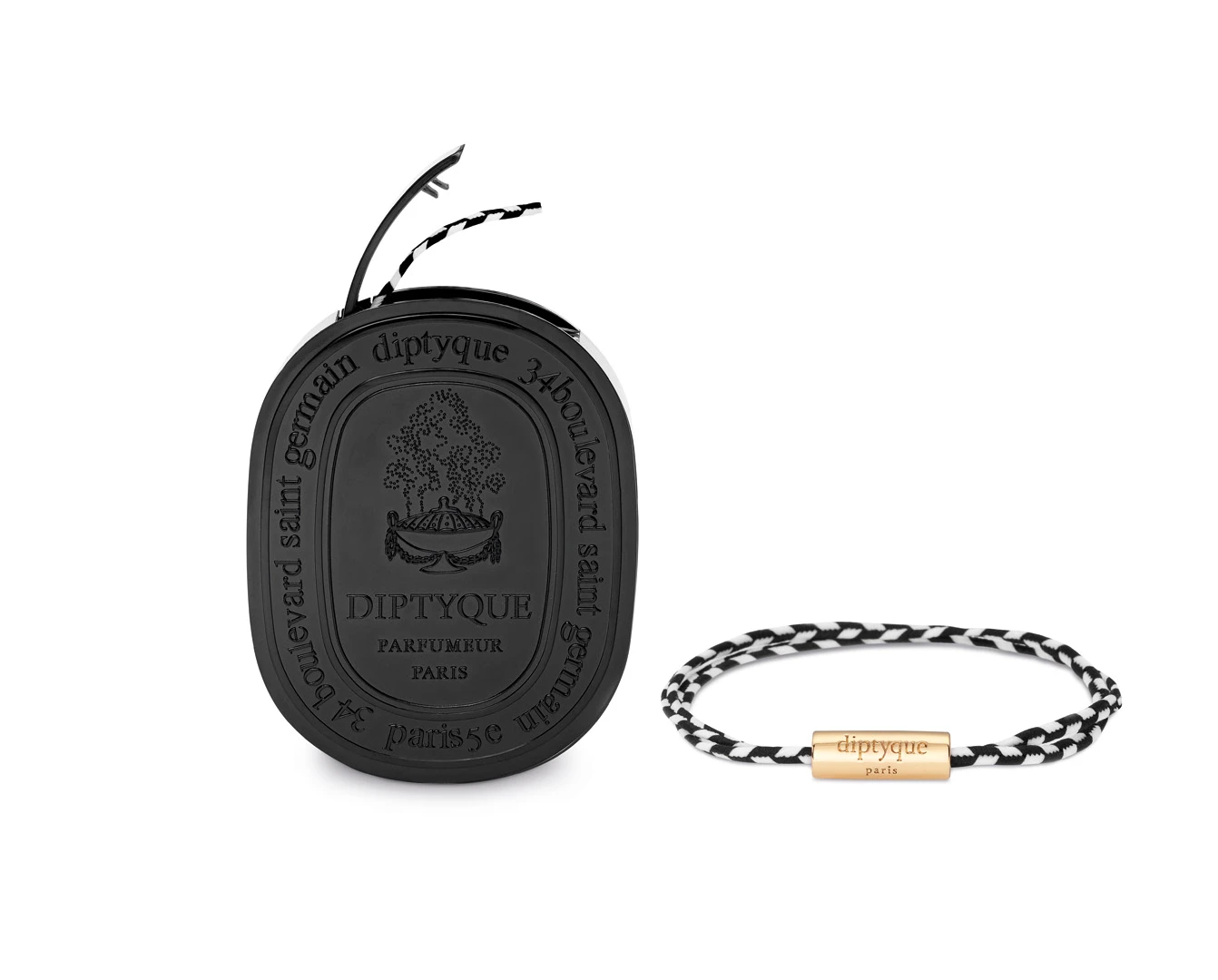
For the $120 brooch, Diptyque created a funny-looking gold bird with skinny legs that actually move. The design that goes all the way back to the brand’s origins in the ’60s, when founders Desmond Knox-Leet and Christiane Gautrot worked with artists Jean-Marc Gady to create bird motifs that decorated the brand’s earliest products. This brooch has a a spot in the back where you can insert a small solid perfume.
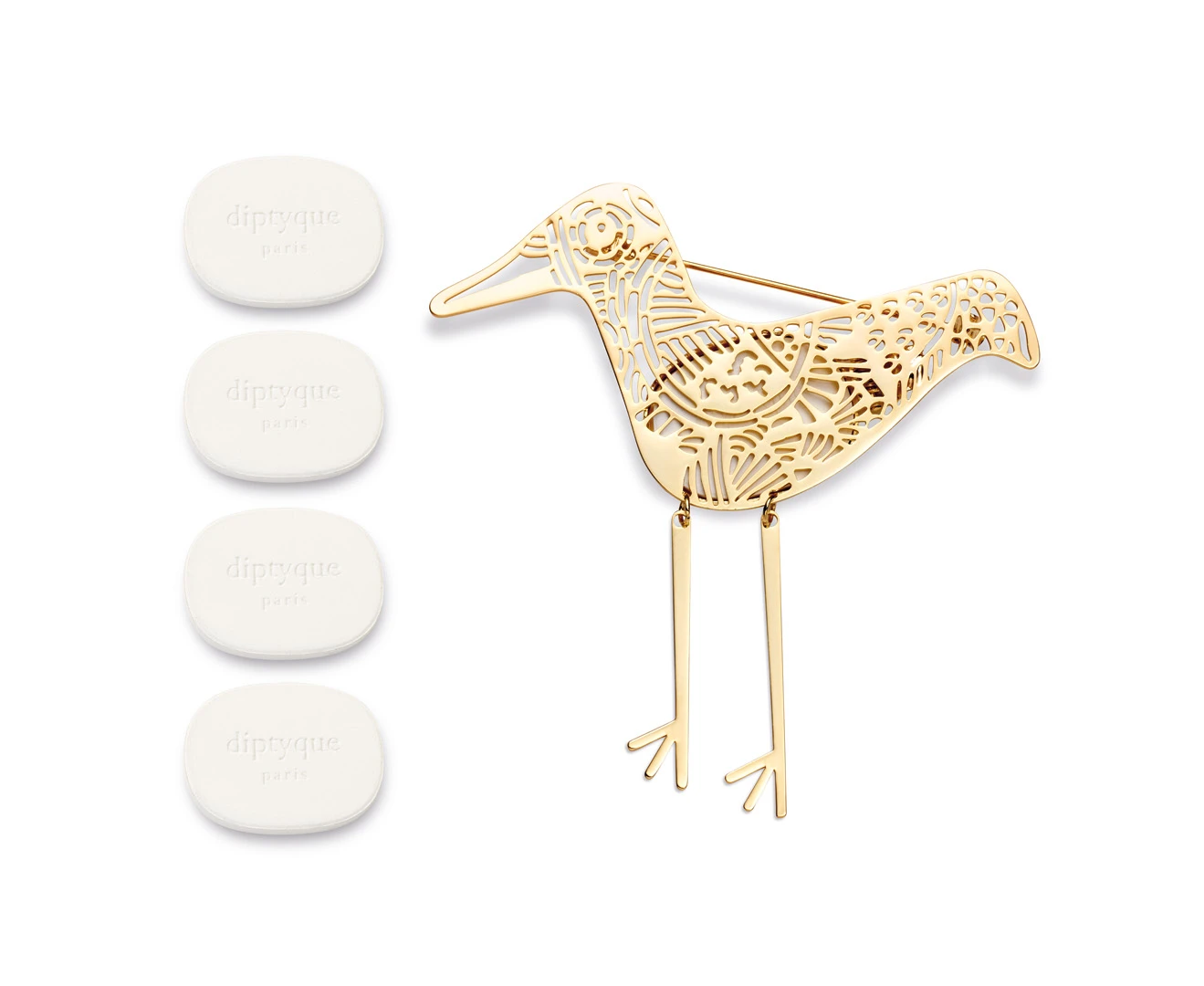
And finally, there are the tattoo stickers, which cost $55 for a pack of five in three of the brand’s most popular scents: A rose for “Eau Rose,” a tuberose for “Do Son,” and a swan for “L’Ombre das L’Eau.” The black tattoos can be reapplied on the skin three times.
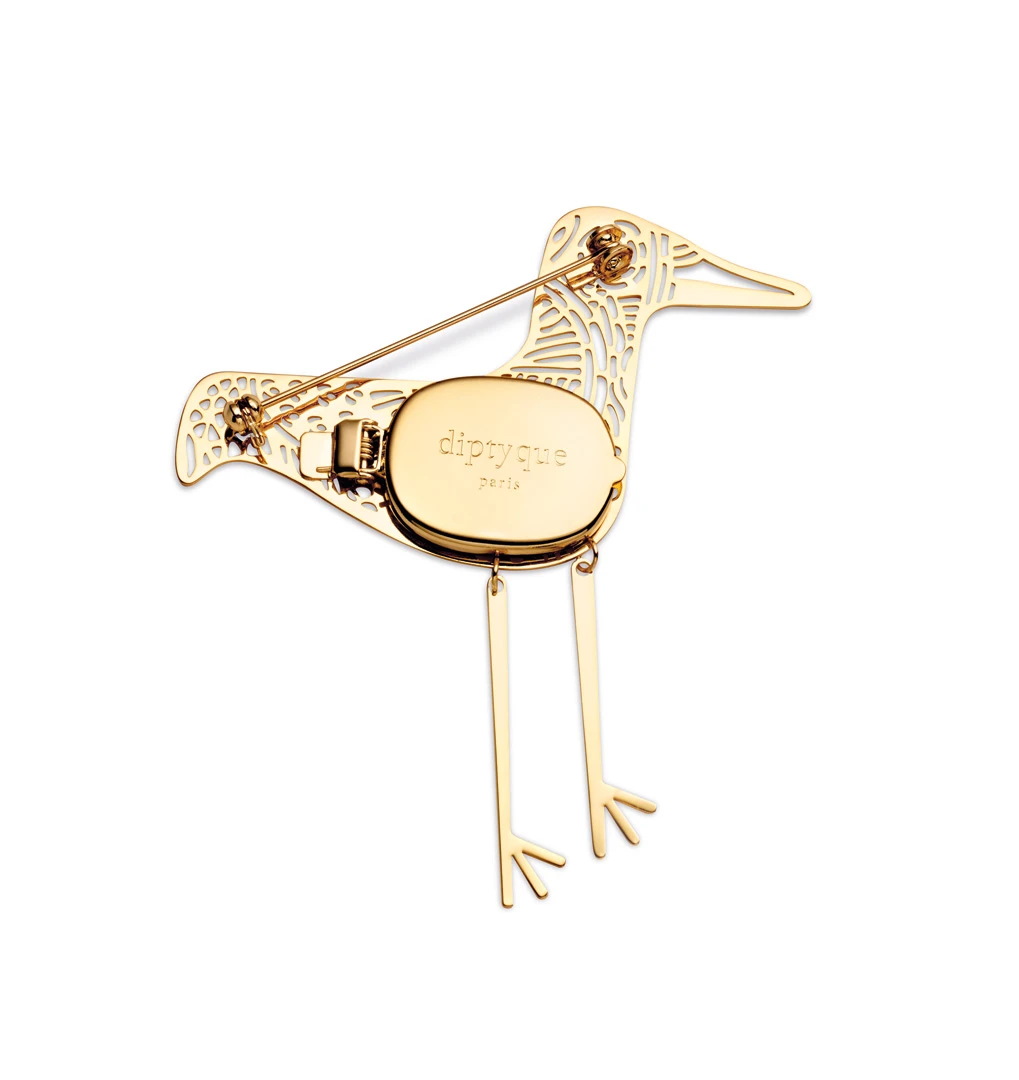
While Diptyque creates a range of perfumes, it is best known for its $100 scented candles, which have a cult following. From the start, the founders were always interested in using scent to set a mood or to create an atmosphere by being able to adjust how much perfume is released. Most recently, the brand released an elegant car diffuser designed with an adjustable metal grill that allows you to control the intensity of fragrance in the car. So it makes sense that Diptyque would find ways to innovate how much personal fragrance you want to carry on your body and emit to the world—without overwhelming anyone around you.
Recognize your brand’s excellence by applying to this year’s Brands That Matter Awards before the early-rate deadline, May 3.
